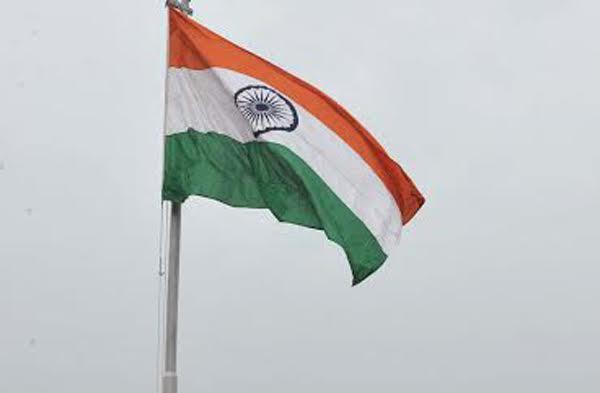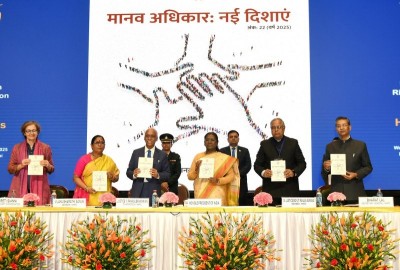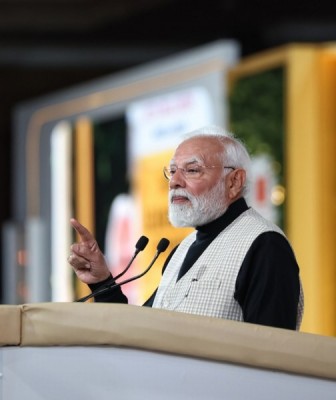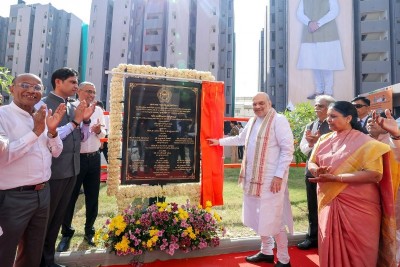
The Constitution is for self- introspection
The Constitution of India is not the product of political power growing out of the barrel of a gun. It is the product of a protracted deliberations of about three years in the constituent Assembly which was a gathering point of eminent legal luminaries and peoples’ representatives. The values and ethical norms of the constitution transmitted by freedom struggle have been enshrined in the preamble to the Constitution which is deemed to be the Philosophy of the Constitution.
The basic objectives of the Constitution was adopted on 22 January 1947. The objectives Resolution was moved by Jawaharlal Nehru on December 13, 1946. It inspired the shaping of the Constitution later. It reads thus – “This constituent Assembly declares its first and solemn resolve to proclaim India as an Independent Sovereign Republic and to draw up for her future governance a constitution”. This has been reflected in the preamble to the constitution. The Preamble remained the same as it had been scripted in 1949 till 1976. In 1976 it had been amended (42nd Amendment Act) to insert new words – ‘Socialist’, ‘secular’ and ‘integrity’. But for the purpose of including these new words no article of the constitution had to be changed. Our constitution has been given a secular character in 1949 and it remained so without any formal ‘secular’ tag. Articles 25 to Articles 28 in particular contained in the chapter of Fundamental Rights express the secular nature of the constitution. The two words ‘socialist, secular’ had very volatile political connotations at the time when the preamble had been amended.
It may be mentioned that while Pakistan preferred to remain a British Dominion until 1956, India gave up colonial tag and became a Republic. In a republican state in every sphere of governance there is a democratic norm which is the hall mark of the constitution and the will of the people.
In India the head of the state that is the President is our elected head. On the 26th January 1950 when the constitution came into force the crown of England ceased to have any legal authority over India. India retained its membership of (British) Commonwealth of Nations without hampering its sovereignty. It was an agreement by free will. It can be terminated by free will. The constitution of India has been made following the British model in the main. It has adopted the British cabinet system of government in which the head of the state is a titular head and the Prime Minister with his cabinet is the real head who exercises actual power starting from the people.
There is a remarkable departure from the British system also. While Britain is a unitary state India has set up a Federal structure of governance in line with the American constitution. Article 1 of the constitution of India says: “India that is Bharat is a union of States”. Our constitution is based on the spirit of decentralization and this principle has been implemented in the Panchayat system at the village level of governance widely. A redeeming feature of Indian democracy is the empowerment of women to facilitate their role is the political process at the grass root level. The 73rd Amendment of the Constitution has ensured 33 percent of seats reserved for this purpose. It is the participation of people in the functioning of governance that makes democracy meaningful. Actually in every election from the Panchayat to Parliament people work with the validity of the constitution by their active participation. Till now there have been sixteen general elections held at the union level and a number of elections in different states. People elect their representatives who are entrusted to do the job of governance following the constitution. People watch their activities. But there is also a constitutional mechanism to keep watch on the performance of the executive and the Parliament in making laws as per constitutional provisions. That watchdog is the judiciary. At the apex of judiciary stands the Supreme Court which is regarded as the guardian and protector of the constitution. Parliament is deemed to be the repository of people’s power. But it cannot wield its power uncontrolled. It is bound by the provisions of the constitution and cannot cross the line. Our Parliament is not supreme like the British Parliament. Any law made by our Parliament may be quashed if it is not in conformity with the set provisions of the constitution. The Supreme Court is in a position to declare it null and void in that case. Our Parliament cannot amend the Fundamental Rights. Fundamental Rights as enshrined in the constitution are deemed to be basic constituent of the constitution which is beyond amendment by Parliament. Thus our constitution is ardently guarded by judiciary from the capricious act of the politicians.
The constitution is meant for the people. It is the fundamental law of the land. Right to life, therefore, is the core of our fundamental rights guaranteed by the Right to Equality (Articles 14 to 18), protection of life and personal liberty (Articles 21 to 22). A quality life depends on social and economic liberty which has been proclaimed by the preamble to the constitution. Real efflorescence of democracy can be actualized when domination of the institutions by the socially or economically privileged sections of the society will end. All round economic development of the people is the final safeguard of our Republic. The Supreme Court also observes that the right to life means something more than survival or animal existence and would include the right to live with human dignity.
Lastly we may recall what Dr. B.R. Ambedkar observed: “However a good constitution may be, it is sure to turn out bad because those who are called to work it happen to be a bad lot. However bad a constitution may be, it may turn out to be good if those who are called to work it happen to be a good lot. The working of a constitution does not depend wholly upon the nature of the constitution. …….. The factors on which the working of these organs of the state depend are the people and political parties they will set up as their instruments to carry out their wishes and their policies”.
The sixty sixth anniversary of the Republic Day gives us an opportunity to make an introspection of our polity.
(Pulak Narayan Dhar, Former Reader of Political Science, Maulana Azad College, Kolkata)
Support Our Journalism
We cannot do without you.. your contribution supports unbiased journalism
IBNS is not driven by any ism- not wokeism, not racism, not skewed secularism, not hyper right-wing or left liberal ideals, nor by any hardline religious beliefs or hyper nationalism. We want to serve you good old objective news, as they are. We do not judge or preach. We let people decide for themselves. We only try to present factual and well-sourced news.







